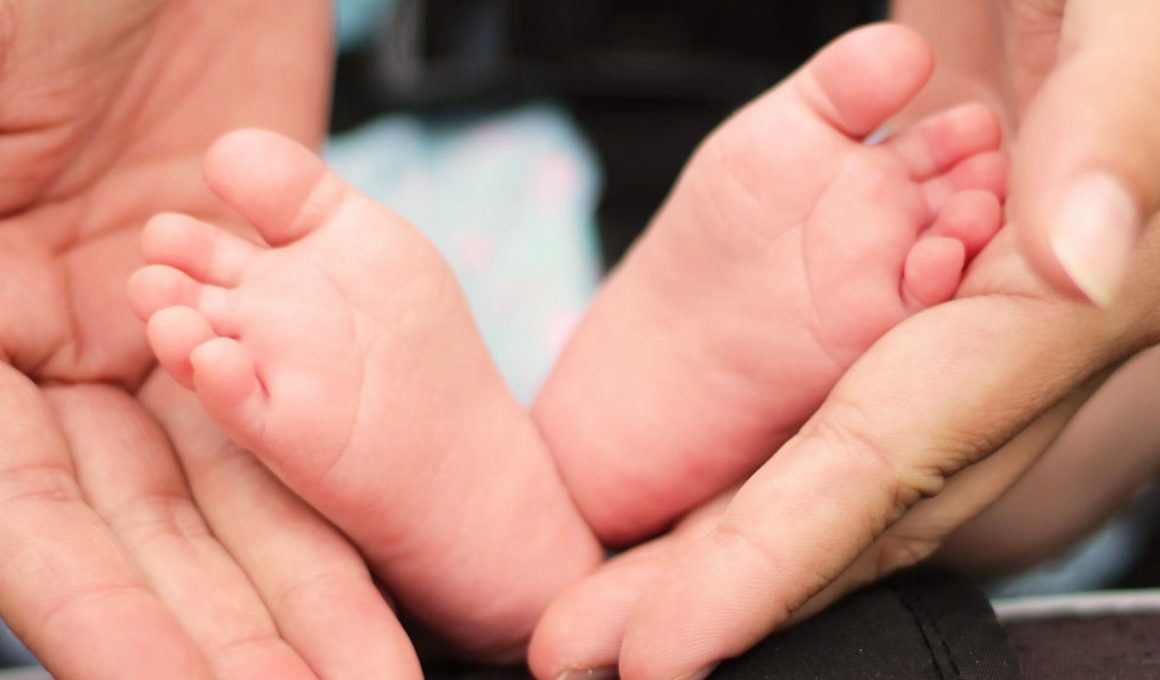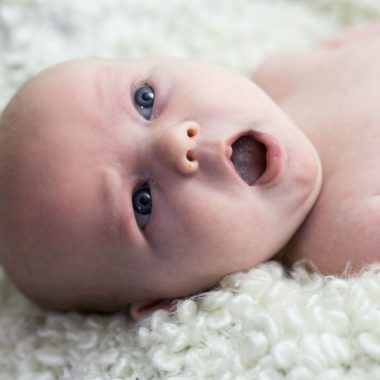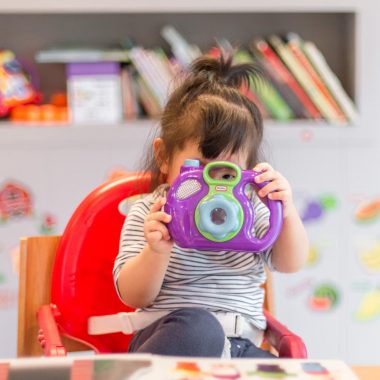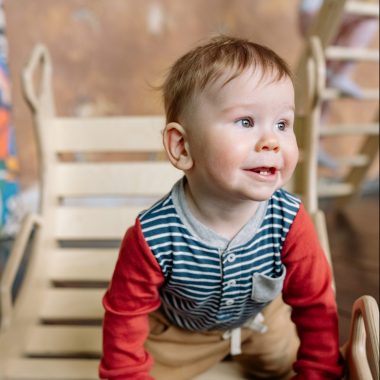Every parent dreams of having a healthy, smart, and loving baby. During pregnancy and following childbirth, parents take great care of their baby’s development.
Starting from the first trimester, a mother’s diet must be rich and nutrient dense. This ensures that the fetus grows in a healthy manner.
However, there are many ways that issues with your baby’s development can surface. As a parent, it is essential to watch for indicators that point toward these abnormalities.
Such impediments to growth can surface at any stage. In some cases, it is obvious that your baby has special needs. But, it is not always so obvious.
Having special needs is not restricted to autism or Down’s syndrome. It can be anything from ADHD to speech impediment and lack of fine motor skills.
Physical impairments such as being deaf or blind cannot pass by undetected. However, less obvious special needs go unnoticed and even unattended.
This is because parents do not pick on the subtle signs of these abnormalities.
So if you are wondering if your child has special needs, here are some early signs to look out for. Early detection can help you provide the best care for your child.
Besides, it can also prepare you to deal with the situation more informedly.
Table of Contents
Early Signs of Developmental Delays
Special needs manifest in a variety of different ways. Every child does not exhibit special needs in the same way.
There are many differences in how children develop and grow.
However, there are a few telltale signs that you can look out for.
Some of the early signs you can look out for to detect developmental delays include:
From birth to 6 months of age:
- Slow or minimal reaction to loud noises
- Not following voices or sounds
- Trouble keeping head lifted by three months of age
- Not smiling or cooing
- Difficulty following people and objects with their eyes
- Stiff arms and legs
- Floppy or limp posture
From 6 months to 1 year of age:
- Trouble with simple logic
- Difficulty finding objects that have been hidden in plain sight
- Problems with responding when called
- Lack of interest in new objects and activities
- Trouble standing up, picking objects, and reaching for things
- Lack of interest in games and activities
- Speech delays and inability to say simple words like “mama” or “baba” by one year of age
- Repetitive self-harming behavior like biting or hitting self
ALSO READ: Toddler Cough Causes, Care and Remedies
Missing developmental milestones
Perhaps one of the clearer signs that your baby has special needs is that they will miss developmental milestones.
While it is true that every baby grows at their own pace, some milestones are generic across the board.
You should expect your child to hit these milestones with a margin of a few days or weeks. An example would be smiling and cooing by 2 months of age.
Your baby should also be able to follow objects and people with their eyes by the same age.
Around 1 year, you should expect your baby to pull themselves upright. They should also be able to engage in and play games such as peek-a-boo.
If you notice that your baby is missing multiple milestones, you might need to drop by a child specialist.
The earlier that special needs are detected, the better prepared you will be to proceed and provide your child with the best care.
Language development
One of the most critical skills in children is language. Although babies develop language skills slowly, they typically experience a spurt in language by the age of 2-3 years.
The American Speech-Language-Hearing Association (ASHA) states that by 18 months, a child should have a vocabulary of 50 words.
This number increases to 300 by the age of 3 years. Around the age of 4, a child should be able to form sentences, use tenses, and understand plural forms.
While their speech is still mostly unintelligible, a 3-year-old should be able to sing simple rhymes, answer W-questions (who, where, what, when) and join two or three words together.
While every child develops and grows at a different pace, these milestones are still ones to watch out for.
Discuss it with your pediatrician if you feel like your baby is experiencing delays in reaching these milestones.
ALSO READ: Baby Teething Symptoms, Care and Remedies
Issues with speech
Children with special needs and children on the autism spectrum experience issues with speech.
Their language development is slower than other children of the same age.
Difficulty with language and speech can be indicative of multiple learning disabilities. Later in life, this manifests into reading, writing, and learning issues.
Impediments with speech and language development can appear as:
- Difficulty with pronunciation
- Trouble rhyming words
- Issues with stringing words together
- Inability to form sentences
- Incapacity to comprehend conversations and dialogues
- Incoherence and warbling
Children with cerebral palsy also exhibit poor speech development and control.
Irresponsiveness when called
The inability to respond when addressed indicates slow or impaired language development, too.
A typical child should be able to follow sounds and noises by 3-4 months. This includes being called or addressed.
A child should be able to respond to their name being called by 6 or 7 months of age. Some children begin recognizing their name as early as 4 months.
Lack of responsiveness, when called, can also be caused by hearing impairments.
You will need to check with your pediatrician whether it is due to hearing impairments or neurological issues.
ALSO READ: When Do Babies Crawl?
Social skills and Communication
Observing your child’s communication and social skills can help you detect signs of special needs early on. Children on the autism spectrum face great difficulty in connecting with others.
They also have trouble communicating their needs effectively.
Signs of autism surface when your child is a toddler.
The toddler stage is when your baby is between 1 to 4 years of age.
Poor communication and social skills include:
- Difficulty maintaining eye contact
- Trouble expressing emotion
- Poor understanding of social cues
- Pronounced food aversions
- Fixation with routine and schedules
- Regressive language skills
If you notice any of these signs in your child, be sure to bring them up with your pediatrician.
Difficulty connecting with others
Children with special needs have a difficult time interacting with others. Whether it is adults or other children, you will notice your child has trouble connecting with people.
Social relationships are far more difficult to initiate and maintain for children with special needs. As a parent, you might notice that your child prefers to stay alone.
Some children prefer being left to their devices. However, if their aloof behavior has you worried, it is best to get them checked by a specialist.
Consulting a specialist will help you understand if your child is introverted or if they have special needs.
ALSO READ: 10 Safe Baby Play Ideas: Messy & Nonmessy
Difficulty with making eye contact
A typical baby will be capable of making eye contact by 6 to 8 weeks. Around 16 weeks (or 4 months), your baby’s visual perception will greatly improve.
If you notice that your child has trouble making or maintaining eye contact by this time, this could be a sign that your child is on the autism spectrum.
Children on the autism spectrum also have issues with responsiveness.
You will be able to detect special needs from lack of speech, smiles, or responses when you call your baby’s name.
The severity of autism ranges from subtle to severe. It is crucial to work with your pediatrician or child therapist to understand where on the spectrum your child lies.
Gross and fine motor skills
Motor skills are an important measure of your child’s growth. They are usually divided into two main categories: gross and fine.
Gross motor skills use bigger muscles. For example, kicking a ball or climbing playground equipment is a sign of gross motor skills.
Fine motor skills, on the other hand, involve more delicate use of muscles.
For instance, holding a pen or feeding one’s self is a show of fine motor skills.
The development of gross motor skills begins before fine motor skills.
Your baby should be able to bring their hands together, kick around, and flail long before they begin to color or draw.
Some developmental milestones that indicate healthy typical growth of motor skills are:
By two years of age:
- Jumping using both feet
- Coloring using crayons or color pencils
- Being able to kick or throw a ball
- Building lego and stacking toys
- Climbing in the playground
- Ascending and descending a staircase (with railing support)
- Walking, running or sprinting
- Using utensils
By three years of age:
- Pedaling a tricycle
- Standing, hopping, or jumping using only one foot
- Ability to balance on one foot
- Walking backward
- Turn a book’s pages
- Put together or take apart toys with smaller parts
- Drawing a circle
ALSO READ: 8 Summer Activities For Kids Of All Ages
Inability to focus or control impulses
A child with poor motor skills will easily become frustrated with certain activities. For example, building a lego tower or coloring will easily frustrate them.
You will notice that they lose interest quickly. This behavior can suggest attention deficit hyperactivity disorder (ADHD).
Children with ADHD lose interest quickly, get easily frustrated and exhibit impulsive behavior. If your child also has trouble with motor skills, they are more likely to behave in this manner.
If you notice that your child does not have the capacity to stay focused on a task or control their impulses, it could be due to ADHD or delayed motor skill development.
The best course of action would be to consult your pediatrician.
Trouble with motor skills
One of the most common early signs of special needs is the inability to hold a pen or handle utensils.
This shows your child’s muscles are not developing as they should. Later in life, this will affect both gross and fine motor skills.
You can typically notice trouble with motor skills early on. However, don’t rush your child.
If there is a significant delay in reaching developmental milestones, or their regressive motor skills are too obvious to ignore, check in with your doctor.
ALSO READ: Colic Baby: Causes, Symptoms, Prevention and Treatment
Factors That Affect Typical Development
A lot of factors can contribute to developmental impediments and special needs. Some of the factors that affect typical development in children include:
- Poor nutrition (both during pregnancy and following childbirth)
- Exposure to tobacco, drugs, or alcohol (environmentally or while in the womb)
- Low birth weight or premature birth
- Exposure to stressful and/or traumatic incidents
- Infections experienced by mother during birth or during baby’s early life
- Exposure of mother or baby to environmental toxins such as lead
Supporting A Special Needs Baby
If you suspect that your child has special needs, the first thing you need to do is not panic. You need to maintain your calm and move forward with composure.
Before making any diagnoses yourself, get your baby checked by a specialist. You can inform your doctor about the symptoms and signs you have observed.
The final diagnosis must always come from a specialist.
Children can miss developmental milestones for several reasons. It is not always a sign that your baby has special needs.
If your doctor confirms that your child has special needs, you must look into ways to support your child.
Children with special needs can grow up to lead healthy and fulfilling lives with the right care and support. Special needs do not have to be the end of a normal life for your baby.
Getting your child diagnosed early is crucial.
This enables you to provide them with the right tools and professional care to help them overcome developmental challenges.
Such care includes, but is not limited to, caregivers, nannies, and child therapists (e.g. speech, physical, and occupational therapists).
How Can Invidyo Help?
Children with special needs require more care and attention than the typical child. A great way to stay up to date about your baby at all times is to invest in a baby monitor.
Invidyo’s Smart AI Powered Baby Monitor makes a great choice. You can use the two-way mic communication to stay in touch with your child every minute of the day.
The Baby Cam also informs you of strangers who approach your baby. It also provides detailed Cough & Cry analysis to help detect abnormalities or illnesses.
Invidyo also allows you to track your baby’s sleep patterns as well. It acts as your eyes and ears when you are not physically around your baby.
With the Invidyo app, you can access built-in tracking features, automatic smart notifications, and daily, weekly and monthly reports.
Learn More About The Invidyo Bundle!
ALSO READ: You Won’t Believe How Invidyo Helped This Mama
Bearing everything in mind, don’t forget that all children grow and develop at different paces.
This difference in growth rate can be caused by a variety of factors such as personal experiences, temperament, health, and personality.
It is always safest to consult your doctor if you notice any abnormalities in your baby’s growth and development.
Even if your pediatrician does not detect any issues, do not let that deter you from going for another visit if things don’t seem right.
You can never be too careful about your darling little one. It is better to be safe than sorry.










